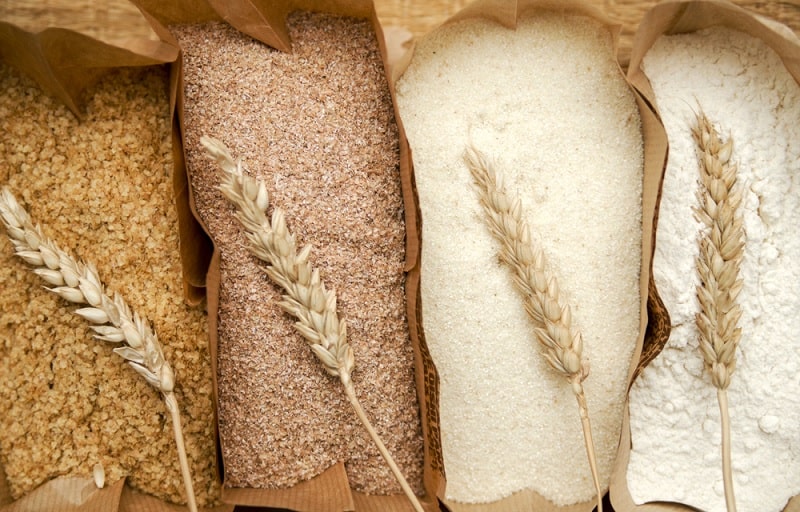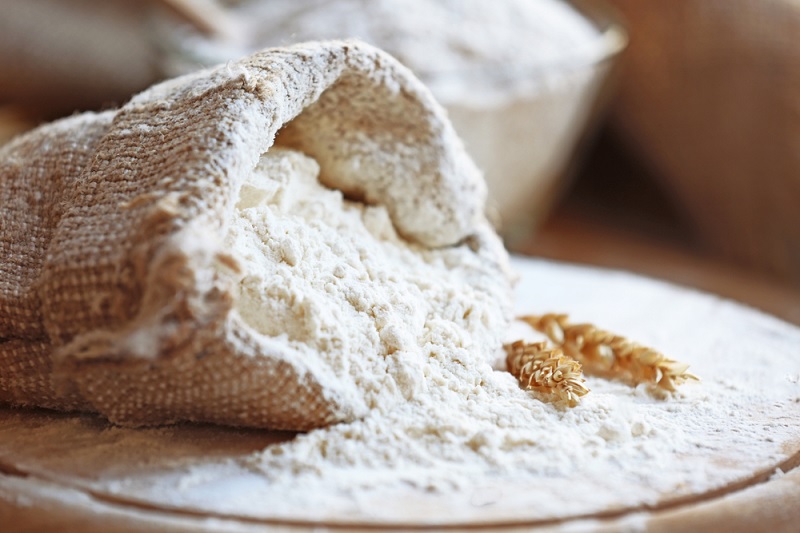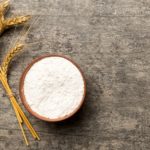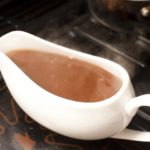Whole wheat flour is a common type of flour in America that is typically used in baked goods, bread, and homemade pasta.
If you’ve ever come across this ingredient in a recipe before, you are probably aware that it is not something you will find at your local UK supermarket.
However, this isn’t because whole wheat flour isn’t available in the UK. Instead, it is because we give it a different name.
So, what is whole wheat flour called in the UK?
The answer to this question is something that everyone in the UK will already be familiar with: wholemeal flour. This is exactly the same as its US counterpart and can therefore be used in any recipes calling for whole wheat flour without any issues.
For a more detailed explanation of what wholemeal flour is, read on!
What Is Wholemeal Flour?
Wholemeal or whole wheat flour, like all wheat flour, is made by grinding up wheat kernels. These kernels are made up of three parts:
- Bran: The outer shell of the wheat kernel that contains high amounts of fibre and vitamin B
- Germ: The sprouting section of a wheat kernel that provides antioxidants, oils, minerals, and vitamins E and B
- Endosperm: The soft inner tissue of the wheat kernel that is high in protein, carbohydrates, and iron
Many types of wheat flour (e.g., plain flour and self-raising flour) are milled to remove the majority of bran and germ from them.
In comparison, wholemeal flour contains all three parts, or in other words, the whole wheat kernel (hence its name).
Many mills create wholemeal flour by removing the bran and germ, then reintroducing them later in the production process.
However, it is also possible to merely grind up whole wheat kernels and leave the final product as it is. Both products are virtually the same, but the latter will end up with slightly more nutrients.
Are Wholemeal and Wholegrain Flour the Same Thing?
Wholemeal and wholegrain flour are repeatedly confused in the UK and, as such, are often used interchangeably. However, the terms ‘wholemeal’ and ‘wholegrain’ do not mean the same thing.
Wholemeal flour is that which was described above: a type of flour that contains all three parts of the wheat kernel.
Wholegrain flour, on the other hand, is wholemeal flour with additional grains and seeds added in. This gives it more texture and increases the nutritional value of the flour.
Is Wholemeal Flour Healthy?
Because wholemeal flour is not processed and refined as much as some other forms of flour (e.g., white flour), it is one of the healthiest types of wheat flour out there.
The main reason for this is that the bran in wholemeal flour greatly improves its fibre content. Fibre has various health benefits, known to help prevent constipation, lower blood cholesterol levels, and aid with weight loss.
This, combined with the high levels of other vitamins and minerals, means that foods containing wholemeal flour can be eaten as part of a healthy, balanced diet.
On top of this, wholemeal flour has a lower glycaemic index than many other wheat flours. In other words, it takes your body longer to break down and absorb any sugars in whole wheat flour. This helps to regulate blood glucose levels.

What Can You Use as an Alternative to Whole Wheat Flour?
Whole wheat or wholemeal flour is readily available in the UK and is found in all major supermarkets. However, like all wheat flour, wholemeal flour is not suitable for those with coeliac disease as wheat flour contains gluten.
If this applies to you, you must substitute this flour for something else when cooking. Some of the best alternatives in the UK include:
- Brown rice flour
- Oat flour
- Millet flour
- Cornflour
- Buckwheat flour
- Tapioca flour
- Arrowroot flour
- Coconut flour
- Almond flour
- Rye flour
Each of these flours will have a slightly different flavour and texture than wholemeal flour, so you may need to do some trial and error before you find one that you like.
Although some of these will be available to buy from your local supermarket, you may need to go to a wholefoods store depending on which alternative you want to try.

Hannah is a freelance content writer and self-proclaimed foodie. When Hannah isn’t sitting tapping at her laptop, you’ll probably find her in the kitchen. As an ex-chalet host, she’s used to cooking four-course meals for 10+ people and loves feeding friends and family whenever possible.



